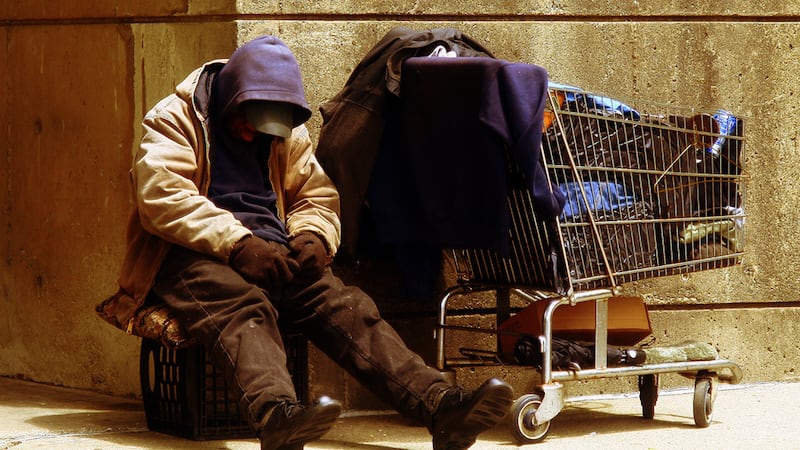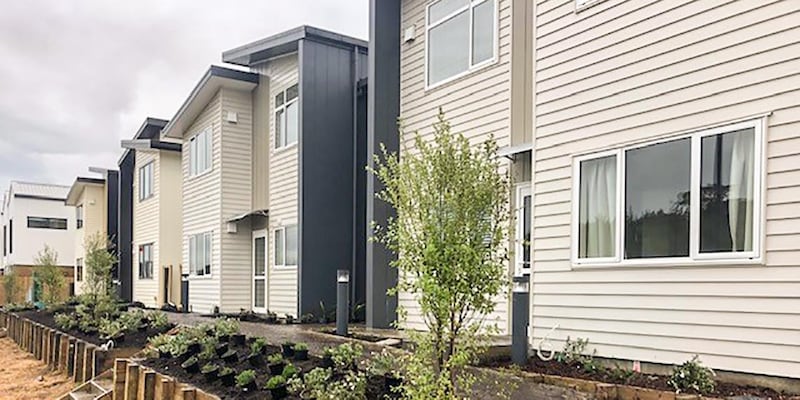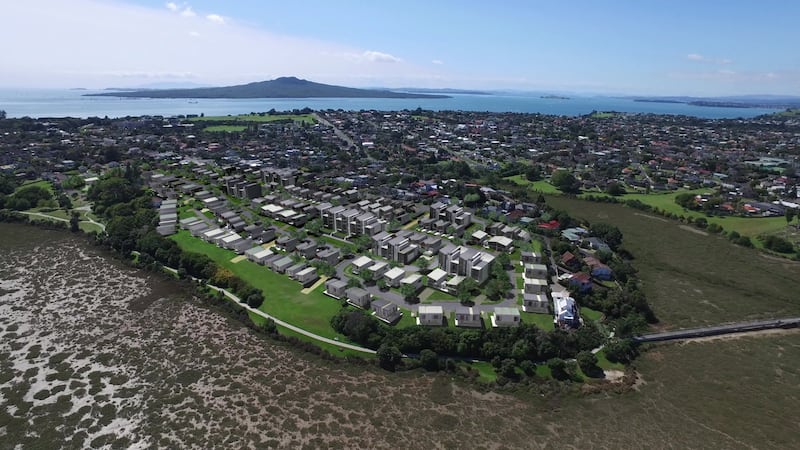NZ Māori Council executive Matthew Tukaki says there are an estimated 20,000 homeless in Auckland but not all of these people live on the streets.
“Homelessness isn’t just about people living on the streets,” he says.
“Homelessness is people who are couch-surfing, living in temporary accommodation.”
It also includes people living in their vehicles.
Living in flax bushes
During the lockdown, homeless people were sheltered in motels. Tukaki says 60% of these people were Māori.
Tukaki lives in the Auckland CBD, and says homelessness is widespread there.
“It’s not just what’s happening on Queen Street,” Tukaki says.
“It’s what’s happening in Albert Park. It’s what’s happening in Victoria Park.”
The Māori Council Executive says people are even living in flax bushes.
Not all mentally ill and jobless

Photo / File
He says there’s a common misconception that homeless people are also unemployed and mentally ill. But the plight of the working poor is still widespread.
“A lot of our whānau who are homeless are living in their cars, or are living in temporary accommodation but they are employed,” Tukaki says.
Their low wages, Tukaki says, means they are unable to get the housing they need. He says people are slipping through the cracks, and living undetected by relief agencies.
“They’re the invisible people,”
“The invisible whānau are those that are at the back of our heads. We don’t realise they’re probably staying four to a home, in the lounge or that they’re sleeping in their cars that they’re moving from one house to another.”
First-time ownership

Salvation Army housing complex in Westgate - Photo / Salvation Army
Tukaki says accommodation being used for quarantine and isolation, reduces the available housing for the homeless. But housing the homeless in hotels, he says, is unviable long-term.
“We’re not seeing the construction of social housing,” Tukaki says.
And there isn't enough state housing either. There are no real rent-to-own housing schemes.
Tukaki says the money used to house homeless during Covid could have paid for 200-300 homes.
He'd like to see a nationwide buying scheme for first-time homeowners to help young people.
Social housing's rise

Foreground - the Ngāti Whātua housing project in Oneoneroa (Belmont) - Photo / File
This year, the Salvation Army opened a 22-apartment social housing complex in Westgate, Auckland. It runs similar complexes in Royal Oak and Manurewa.
Iwi continue to build their complexes. Ngāi Tahu finished the Kerepeti housing complex in Hobsonville Point, Auckland in 2019. In the same year, Ngāti Whātua launched its commercial housing project, which will fund more social housing initiatives.
Te Atiawa had its housing project fast-tracked through the new RMA processes introduced this year.
Kainga Ora operates a first-time home grant for Kiwisaver contributors. Readers can check if they are eligible by clicking here.
